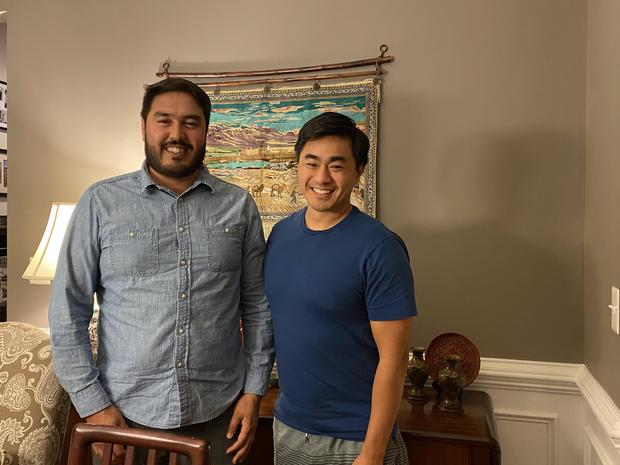7 Early Warning Signs of Dementia You Shouldn’t Ignore
How to spot symptoms that your loved one may have Alzheimer’s or dementia
by Patrick J. Kiger, AARP, Updated March 25, 2022
From age 50 on, it’s not unusual to have occasional trouble finding the right word or remembering where you put things.
Dementia Symptoms at a Glance
- Difficulty with everyday tasks
- Repetition
- Communication problems
- Getting lost
- Personality changes
- Confusion about time and place
- Troubling behavior
But persistent difficulty with memory, cognition and ability to perform everyday tasks might be signs that something more serious is happening to a loved one’s brain.
Dementia isn’t actually a disease, according to the Mayo Clinic. It’s a catch-all term for changes in the brain that cause a loss of functioning that interferes with daily life. Dementia can diminish focus, the ability to pay attention, language skills, problem-solving and visual perception. It also can make it difficult for a person to control his or her emotions and lead to personality changes.
Roughly 6.5 million Americans are living with Alzheimer’s dementia, according to the “2022 Alzheimer’s Disease Facts and Figures” report from the Alzheimer’s Association. Alzheimer’s disease is the leading cause of dementia, accounting for 60 percent to 70 percent of cases, but a range of brain illnesses can lead to the condition (see sidebar, “Diseases that cause dementia”).
Diseases that cause dementia
These conditions are the leading causes of dementia. Many patients have mixed dementia, a combination of two or more types, such as Alzheimer’s and vascular dementia.
Alzheimer’s disease. Alzheimer’s is characterized by amyloid plaques and tangled fibers in the brain and by a loss of connections between nerve cells. Damage initially appears in the hippocampus, an area of the brain involved in memory formation, and gradually spreads.
Vascular dementia. The second most common type of dementia results from damage to the vessels that supply blood to the brain. It tends to affect focus, organization, problem-solving and speed of thinking more noticeably than memory.
Lewy body dementia. Abnormal protein deposits in the brain, called Lewy bodies, affect brain chemistry and lead to problems with behavior, mood, movement and thinking.
Frontotemporal disorders. Degenerative damage to the brain’s frontal and temporal lobes is the most common cause of dementia in people age 65 and younger. Symptoms might include apathy; difficulty communicating, walking or working; emotional changes; and impulsive or inappropriate behaviors.
Sources: National Institute on Aging, Mayo Clinic
A loved one showing symptoms of dementia needs to see a medical expert who can conduct tests and come up with a diagnosis. If a loved one has dementia, you’ll want to plan how you will manage that care, especially as the condition progresses.
But it’s also important to rule out other medical conditions with dementia-like symptoms that may disappear with treatment such as infections and side effects of medications.
Dementia symptoms to watch for
Here are some of the warning signs identified by dementia experts and mental health organizations:
• Difficulty with everyday tasks. Everyone makes mistakes, but people with dementia may find it increasingly difficult to do things like keep track of monthly bills or follow a recipe while cooking, the Alzheimer’s Association says. They also may find it hard to concentrate on tasks, take much longer to do them or have trouble finishing them.
• Repetition. Asking a question over and over or telling the same story about a recent event multiple times are common indicators of mild or moderate Alzheimer’s, according to the Cleveland Clinic.
• Communication problems. Observe if a loved one has trouble joining in conversations or following along with them, stops abruptly in the middle of a thought or struggles to think of words or the name of objects.
• Getting lost. People with dementia may have difficulty with visual and spatial abilities. That can manifest itself in problems like getting lost while driving, according to the Mayo Clinic.
• Personality changes. A loved one who begins acting unusually anxious, confused, fearful or suspicious; becomes upset easily; or loses interest in activities and seems depressed is cause for concern.
• Confusion about time and place. Loved ones who forget where they are or can’t remember how they got there should raise alarms. Another worrisome sign is disorientation about time — for example, routinely forgetting what day of the week it is, says Jason Karlawish, M.D., a professor at the University of Pennsylvania’s Perelman School of Medicine and co-director of the Penn Memory Center.
• Troubling behavior. If your family member seems to have increasingly poor judgment when handling money or neglects grooming and cleanliness, pay attention.
Some people who experience memory loss or have difficulty with attention, decision-making language or reasoning may have a condition known as mild cognitive impairment. The condition causes a noticeable decline, but the changes are less severe than with dementia and a person can still perform normal daily activities, according to the Cleveland Clinic.
People with mild cognitive impairment are at an increased risk of developing dementia.
Signs of dementia? Where to find help
When your loved one is displaying troubling symptoms, a trip to a primary care physician is often the first step. But to get a definitive diagnosis, you’ll need to see a specialist such as a neurologist, geriatrician or geriatric psychiatrist.
If you can’t find one, the National Institute on Aging recommends contacting the neurology department of a nearby medical school. Some hospitals also have clinics that focus on dementia.
Ailments can mimic dementia
Any number of treatable conditions can cause dementia-like symptoms. Some of the most common:
• Alcohol abuse
• Anxiety, depression or stress
• Blood clots, brain infections or tumors
• Delirium
• Head injuries
• Kidney, liver or thyroid problems
• Side effects of medication
• Vitamin deficiencies
Source: National Institute on Aging
Specialists will want to know about the patient’s personal and family medical history. A close relative or relatives having had Alzheimer’s is a major risk factor.
Recent research suggests that a prevalence among even members of your extended family can increase your dementia risk. Doctors also will conduct physical and neurological exams to rule out other treatable causes for dementia symptoms.
Some of the methods that doctors use to diagnose dementia:
• Cognitive and neuropsychological tests assess language and math skills, memory, problem-solving and other types of mental functioning.
• Lab tests of blood and other fluids, including checking levels of various chemicals, hormones and vitamins, can help rule out nondementia causes for the symptoms.
• Brain scans such as CT, MRI or PET imaging can spot changes in brain structure and function. These tests also can identify strokes, tumors and other problems that can cause dementia.
• Psychiatric evaluation can determine whether a mental health condition is causing or affecting the symptoms.
• Genetic tests are important, especially if someone is showing symptoms before age 60. The early onset form of Alzheimer’s is strongly linked to a person’s genes, according to the Mayo Clinic. Talk with a genetic counselor before and after getting tested.
Editor’s note: This article was published on October 22, 2019. It has been updated with more recent information.
Patrick J. Kiger is a contributing writer for AARP. He has written for a wide variety of publications, including the Los Angeles Times Magazine, GQ and Mother Jones, as well as the websites of the Discovery Channel and National Geographic.









